Trump says US will 'probably' reach deal with Iran
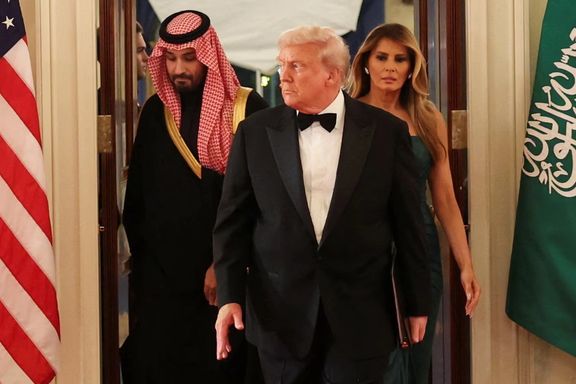
US President Donald Trump said on Wednesday that its Mideast arch-foe Iran was seeking to reach a deal and that his administration would "probably" achieve one.

US President Donald Trump said on Wednesday that its Mideast arch-foe Iran was seeking to reach a deal and that his administration would "probably" achieve one.
In his address to a US-Saudi business forum in Washington DC with visiting Saudi Crown Prince Mohammed bin Salman in attendance, Trump said US strikes on Iranian nuclear sites in June had protected Riyadh.
"We took the Dark Cloud away from your country, it was called Iran and its nuclear capability, and we obliterated that very quickly and strongly and powerfully.
But that was a real cloud over the whole Middle East," he said.
"Now they want to make a deal. They want to make a deal. They want to see if they can work out a deal with us, and we'll be doing that probably. But that was a terrible cloud that you had to live with for a long time."
At a joint appearance in the White House on Tuesday, Trump said the United States was talking to Tehran, which he said "very badly” wanted a deal with Washington.
Tehran flatly denied any such talks were underway earlier on Wednesday.
“There is no process of negotiation between Iran and the United States,” Foreign Ministry spokesman Esmail Baghaei told reporters in Tehran.
“Talking to a side that does not believe in mutual respect and takes pride in military aggression against Iran has no logical justification.”
Iran has denied seeking a nuclear weapon and has rejected US demands that it end domestic enrichment, rein in its missile program and cut off help for its armed Mideast allies.
The impasse over the disputed program festers despite Trump's assertion that the US attacks had "obliterated" it.
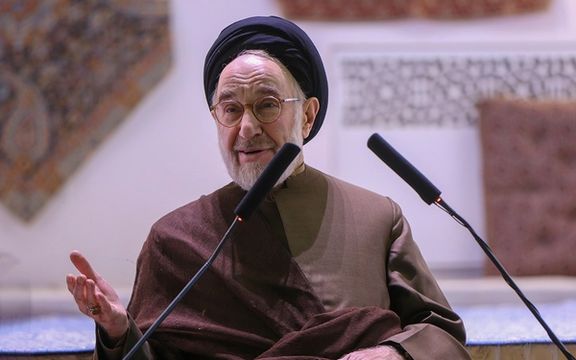
Iran’s former president Mohammad Khatami said most people in the country are more concerned with living their lives amid worsening economic conditions than with who governs them.
“Eighty percent of the Iranian people are not political in a certain sense, and it does not matter much to them who governs or how; they only want to live and to have security and a clearer outlook for the future,” Khatami said.
He said the country has never experienced a situation as severe as the one it faces now, with challenges and threats unlike anything seen since the 1979 Islamic revolution.
Khatami compared Iran’s governing system to “a sturdy tree” that had long endured hardship but now faced mounting dangers.
“This sturdy tree may be able to withstand drought and storms for many years, but today the internal and external threats and problems are so vast and significant that there is a fear this sturdy tree may suddenly wither and collapse, may that day never come,” he said.
Economic hardship
The former reformist president's remarks come as the government struggles to contain soaring prices and widening poverty.
According to Iran's Parliament’s Research Center, over a third of Iranians live in poverty.
Rising inflation and a weakening currency have helped drive up costs of living in Iran and economic pain has deepened as Western and European-triggered international sanctions compound the country's international isolation.
Earlier this month, a senior economist at Iran's Ahvaz University, Morteza Afghah, warned that annual inflation could exceed 60% by the end of the Iranian calendar year (March 2026).
Surveys say otherwise
Last week, a survey by Tehran-based news site Rouydad24 found that 92% of Iranians are unhappy with the country’s direction.
“What is clear is that total public satisfaction with all governments since the revolution is now overshadowed by a 92 percent dissatisfaction with the country’s current situation,” Rouydad24 said.
According to the outlet, the level of satisfaction with Khatami's successor Mahmoud Ahmadinejad’s administration was highest overall, while those of Hassan Rouhani and Masoud Pezeshkian ranked lowest.
Another survey conducted by a Netherlands-based polling institute last year found that the majority of Iranians would vote for either a regime change or a structural transition away from the Islamic Republic.
The Group for Analyzing and Measuring Attitudes in Iran (GAMAAN), which conducted the survey in June 2024, said it polled more than 77,000 respondents inside Iran, weighting the results to represent the literate adult population.
“A majority of the population opposes the Islamic Republic and supports changing or transforming the political system,” the report’s author Ammar Maleki said.
Only around 20 percent of respondents want the Islamic Republic to remain in power, according to the survey.
The survey found no single consensus on what system should replace the current order. A secular republic was backed by 26 percent of respondents, while 21 percent supported a monarchy.
Another 22 percent said they lacked enough information to decide, and 11 percent said that the form of an alternative system was not important so long as change occurred.
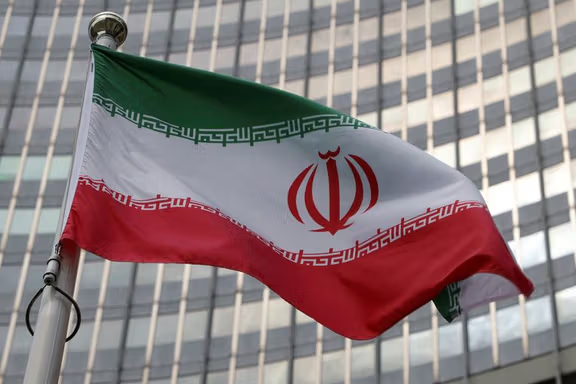
Tehran’s fraught relationship with the UN nuclear watchdog is set to enter a more confrontational phase as the IAEA Board of Governors meets in Vienna this week to vote on a Western-backed resolution censuring Iran for non-cooperation.
The looming vote has triggered a flurry of warnings and condemnations in Tehran, revealing both anxiety over renewed pressure and the contradictions at the heart of Iran’s dealings with the International Atomic Energy Agency and its director, Rafael Grossi.
Since the 12-day war with Israel, Iranian officials have accused Grossi of siding with the West, politicizing the agency’s mission and even spying for Israel and the United States.
Yet they also acknowledge that Grossi remains a crucial mediator whose cooperation—and potential endorsement—is essential if Tehran is to prove its nuclear program is peaceful and ease the standoff.
Iran denies seeking a nuclear weapon but Israel and Western countries doubt its intentions.
‘Mossad spy’
Tensions typically sharpen when Grossi adopts a firmer tone or when Tehran sees his actions as politically driven.
The tone changed dramatically after Israeli and US strikes on Iranian facilities in June 2025, when Tehran faulted Grossi for refusing to condemn the attacks and accused him of helping pave the way through “biased” reporting.
Iran’s parliament followed by approving legislation that restricts cooperation with the IAEA unless individually cleared by the government, while hardline outlets such as Kayhan—closely tied to the office of Supreme Leader Ali Khamenei—branded Grossi a “Mossad spy.”
Nevertheless, cooperation continued, culminating in a September meeting in Cairo where Grossi and Foreign Minister Abbas Araghchi signed an agreement whose details remain undisclosed and contested.
Grossi, for his part, has sought to keep diplomacy alive while castigating Tehran for “totally unsatisfactory” cooperation—yet stopping short of referring Iran to the UN Security Council.
He has stressed repeatedly that “war does not justify an end to cooperation,” framing that stance as central to his mandate.
‘Crossroads’
With the United States and the E3 preparing a resolution for the 19–21 November meeting in Vienna, Tehran appears intent on lowering the temperature.
Iranian officials have denounced the draft text as “political and destructive,” warning it would complicate relations with the West and obstruct negotiations.
Iran’s UN envoy Reza Najafi urged IAEA members to reject the resolution, while spokesman Behrouz Kamalvandi said Tehran might reassess its cooperation, potentially reducing collaboration and increasing enrichment levels.
Despite the heated rhetoric, Tehran seems acutely aware that it still needs Grossi’s public confirmation that its program is exclusively peaceful.
Araghchi and his deputies told a conference that Iran is not currently enriching uranium. But the moderate daily Arman Melli quoted him on Tuesday as saying that enrichment will continue.
Arman Melli added that “Iran’s nuclear dossier has entered a new phase, and new international reactions could alter the course of negotiations over Tehran’s nuclear program.”
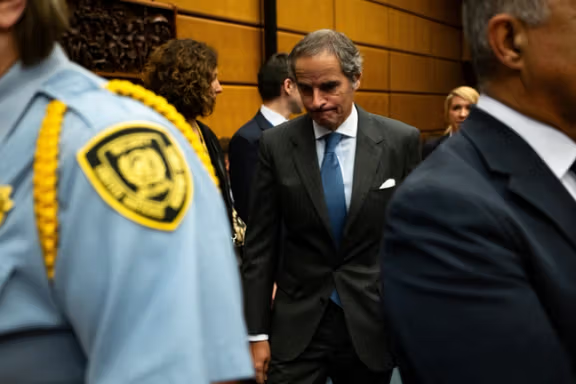
The UN nuclear watchdog said on Wednesday it needs more Iranian cooperation to restore full inspections at sites hit in June’s strikes, warning that verification of enriched uranium stocks is “long overdue.”
In his opening statement to the IAEA Board of Governors, UN nuclear chief Rafael Grossi said the agency urgently needs access to Iran’s inventories of low-enriched and high-enriched uranium, which have not been checked for five months.
Grossi said he is in regular contact with Iranian officials following a September agreement in Cairo that set inspection procedures after the attacks, but added that “further constructive engagement is needed” to implement the deal in full.
The remarks come as the United States and three European allies have submitted a draft resolution demanding that Iran promptly restore cooperation and provide comprehensive nuclear-material accountancy.
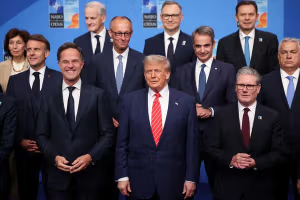
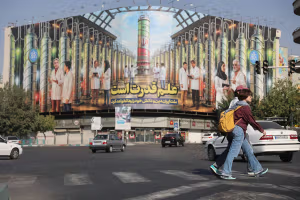
Diplomats told Reuters on Tuesday that the measure is expected to pass at the board meeting later this week.
The text calls on Iran to grant the agency “all access it requires” and to fully implement the Additional Protocol without delay.
Tehran has warned that such a resolution could undermine the September understanding reached with Grossi.
Earlier this week, Iran’s Deputy Foreign Minister Kazem Gharibabadi said the Western push would compromise the agreement, while Iranian officials have linked stalled access to the reimposition of UN sanctions in late September under the snapback mechanism.
Iran has yet to allow inspectors to visit the facilities damaged during Israeli and US strikes in June, according to a confidential IAEA report seen by Reuters earlier this month.
The report said the agency has not been able to verify Iran’s enriched-uranium stockpile since the attacks, when inspectors last confirmed about 440 kg of uranium enriched to 60% purity.
Access granted to unaffected sites
Grossi told the board on Wednesday that establishing the status of Iran’s enriched material “needs to be addressed urgently,” warning that extended gaps in verification increase risks to the safeguards system.
“It is critical the agency be able to verify this material as soon as possible,” he said.
The IAEA chief added that Iran has facilitated access with advanced notice to “almost all unaffected facilities,” calling this step welcome but insufficient.
The renewed push for cooperation follows a turbulent year in which Israeli and US attacks on Iranian nuclear facilities during the 12-day war in June left parts of the program damaged.
Iranian officials say the strikes undermined the credibility of the IAEA and have accused the agency of failing to condemn the attacks.
The IAEA board will continue discussions this week as Western governments seek to pressure Tehran back into full compliance, while Iran argues that sanctions and security concerns must also be addressed.
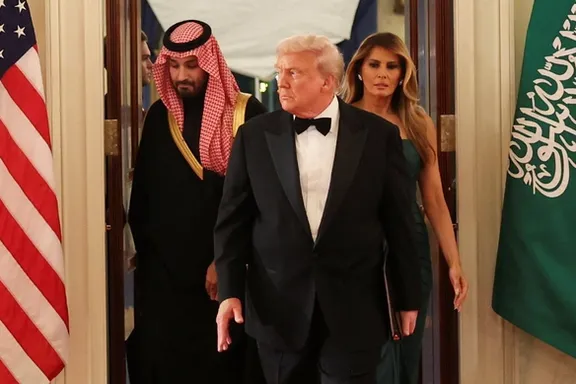
Iran said on Wednesday that no negotiation process is underway with the United States, rejecting President Donald Trump’s claim a day earlier that the two sides had begun talks.
“There is no process of negotiation between Iran and the United States,” Foreign Ministry spokesman Esmail Baghaei told reporters in Tehran.
“As the foreign minister has said many times, talking to a side that does not believe in mutual respect and takes pride in military aggression against Iran has no logical justification.”
Trump said on Tuesday that the United States was talking with Iran and that he believed Tehran wanted a deal “very badly.”
Speaking at the White House alongside Saudi Crown Prince Mohammed bin Salman, he said, “I am totally open to it, and we’re talking to them, and we start a process.”
The US president added that “it would be a nice thing to have a deal with Iran,” saying he thought the two sides could reach one with Saudi support.
Washington and Tehran held indirect contacts earlier this year over Iran’s nuclear program and regional issues, but the talks stopped after Israel launched a 12-day military campaign in June, followed by US strikes on key Iranian nuclear sites.
No message to US via Riyadh
Baghaei also addressed reports about a recent message from Iranian President Masoud Pezeshkian to the Saudi crown prince, saying it had only bilateral content.
He said the message, delivered by the new head of Iran’s Hajj and Pilgrimage Organization, expressed Iran’s gratitude for Saudi Arabia’s assistance to Iranian pilgrims last year and stressed the need for continued cooperation for this year’s pilgrimage.
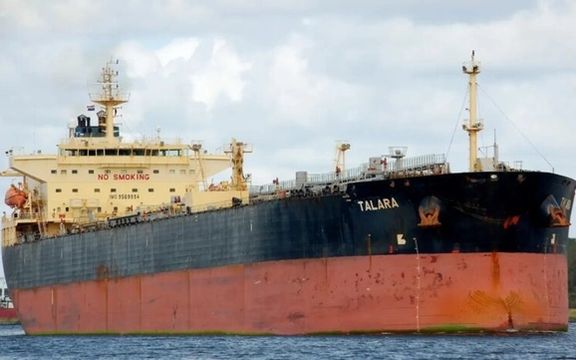
Iran has released the Marshall Islands-flagged product tanker Talara and all 21 crew are safe, the vessel’s operator Columbia Shipmanagement said on Wednesday, days after Iran’s Revolutionary Guards confirmed they had seized the ship off the country’s southern coast.
"We have informed their families, and the vessel is now free to resume normal operations," Reuters quoted the manager as saying.
The Guards said on Saturday that rapid-reaction units intercepted the tanker near the Makran coast under a judicial order to confiscate its cargo. State media quoted sources saying the vessel carried about 30,000 tons of petrochemical products owned by Iran that were being transferred illegally to Singapore.
Fars news agency said the ship was directed to an Iranian anchorage for inspection and was found to be in breach of rules on transporting unauthorized goods. The Guards said the operation was carried out under legal authority “to protect national interests.”
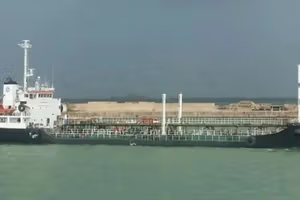
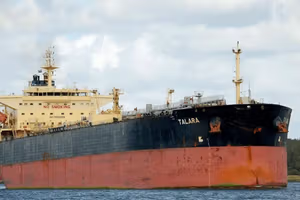
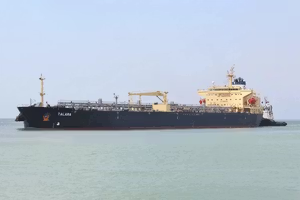
Vessel diverted from UAE waters
The Talara, operated by Cyprus-based Columbia Shipmanagement and owned by Pasha Finance, had been sailing from Sharjah to Singapore with a load of high-sulphur gasoil when contact was lost on Nov. 15. Maritime security firm Ambrey said the tanker was about 22 nautical miles east of the UAE port of Khor Fakkan when small boats approached and the vessel changed course toward Iranian waters.
Iran has stepped up maritime enforcement in the Gulf of Oman and the Strait of Hormuz in recent months, citing efforts to curb fuel smuggling. The seizure came amid continuing legal cases involving other foreign vessels detained by Iranian forces in past incidents.
The operator said on Tuesday the ship and crew were in good condition and that the Talara would soon resume normal operations.